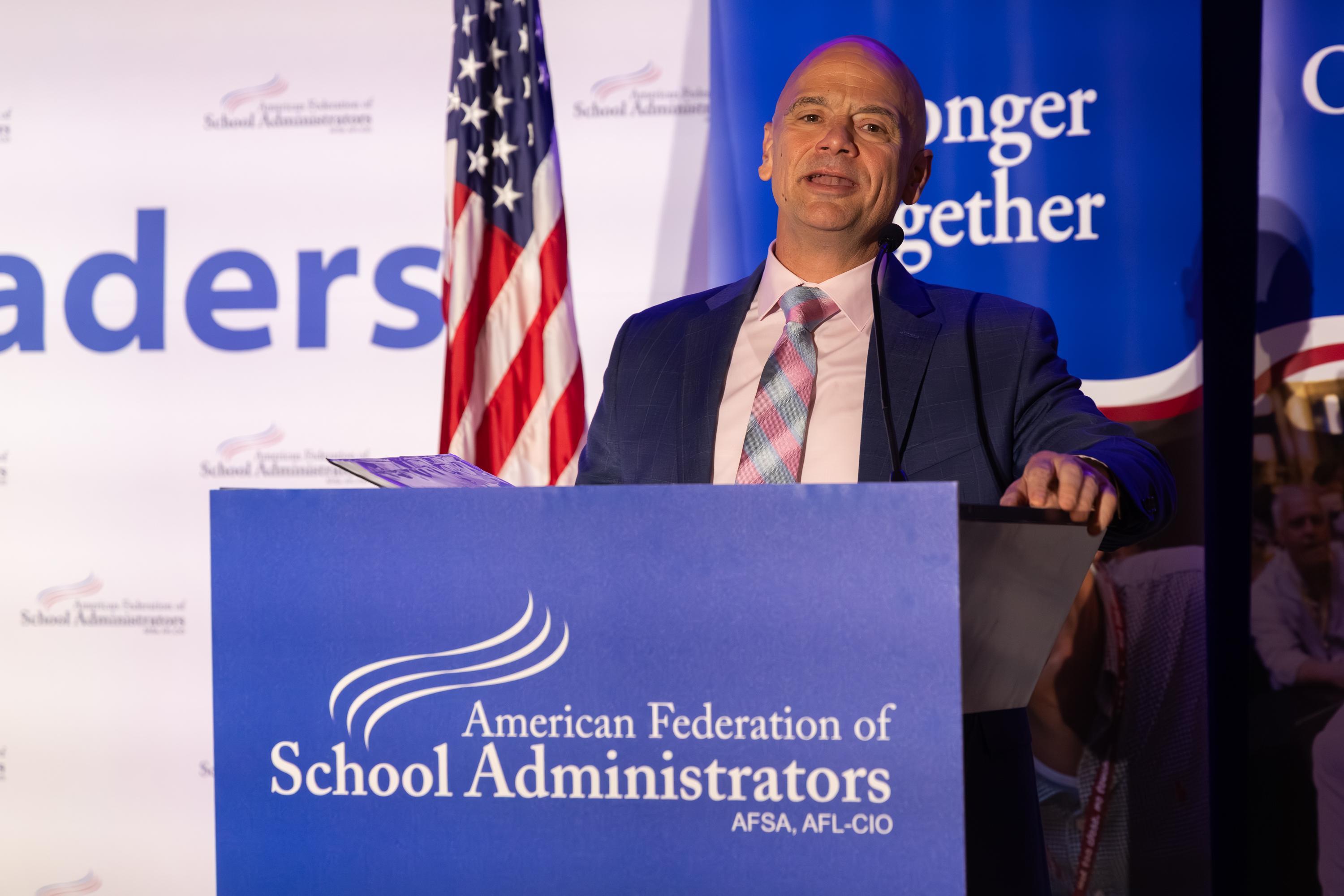School leaders are the “real heroes” of the public education system and their voices in shaping the future of schools are more important now than ever, said Mark Cannizzaro, president of the American Federation of School Administrators (AFSA), in a powerful address to delegates at the union’s 17th Triennial Constitutional Convention.
Cannizzaro—a former teacher, assistant principal and principal who left his school leadership role more than a decade ago to become a full-time union advocate—praised the tireless dedication of school leaders. “It’s an honor to represent people you genuinely respect—people like all of you,” he said. “Principals, assistant principals, directors and support staff who work every day, night, weekend and holiday on behalf of students.”
“You make sure kids have backpacks and school supplies, winter coats, prom dresses and food for the holidays. You’ve stood by your communities in times of tragedy, and you do it all with humility, grit and unmatched compassion,” Cannizzaro said. “Too often your good deeds go unrecognized, while one perceived misstep draws outsized attention—and yet you persist.”
He urged school leaders to unite their voices and demand the resources, respect and fair policies necessary to create safe, thriving learning environments. He emphasized the critical role of unions in protecting those who often “speak up for everyone else but rarely for themselves.”
“You are the adults in the room,” Cannizzaro said. “And when you find the courage to speak up—clearly, respectfully and professionally—those in power will have no choice but to begin to listen.”
“Unionism for school leaders is more important now than ever,” he added. “But too many districts still engage teachers while ignoring administrators.”
“We must get to a place where districts appreciate our value,” he continued, “and recognize that we lead the system—not because of them, and often despite them.” He encouraged local presidents to push for contract provisions like “me too” clauses to ensure equal pay and benefits for school leaders. “Ultimately, we must become the ones unwilling to settle for the same deal offered to those we supervise,” he said.
Citing Rev. Dr. Martin Luther King Jr.’s warning against “right to work” laws aimed at weakening unions, Cannizzaro noted that even after the Janus Supreme Court decision—which sought to undermine organized labor—union membership has continued to grow.
“Parents, communities and the media want to hear your voice on critical issues because you are credible, and they trust you,” he told members. “Great schools begin with great leaders, and it is to everyone’s benefit—most importantly our students’—to hear and respect the voices of those in the trenches.”
“Growth only comes when we demonstrate our value—and AFSA’s value is clear,” he said. “We are solely focused on advancing school and school support leadership. We offer expert guidance, training and the power of a unified voice. The work will not be easy, but it will absolutely be worth it.”
In closing, Cannizzaro struck an optimistic tone, reminding leaders of their essential role in shaping students’ lives and the future of public education: “Don’t ever forget that the work you do changes and saves lives,” he said. “Despite the political rhetoric or the fate of the U.S. Department of Education, public education will endure—and school leaders will always be essential and in high demand.”

